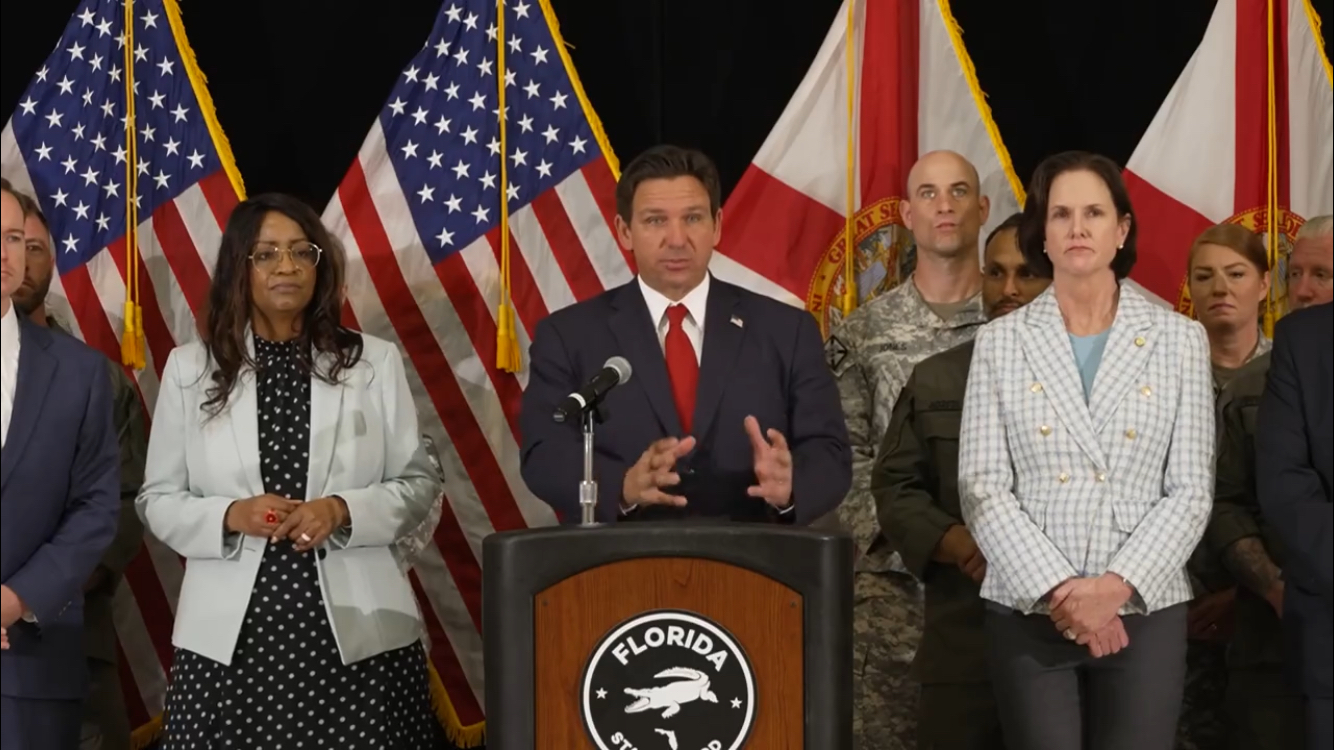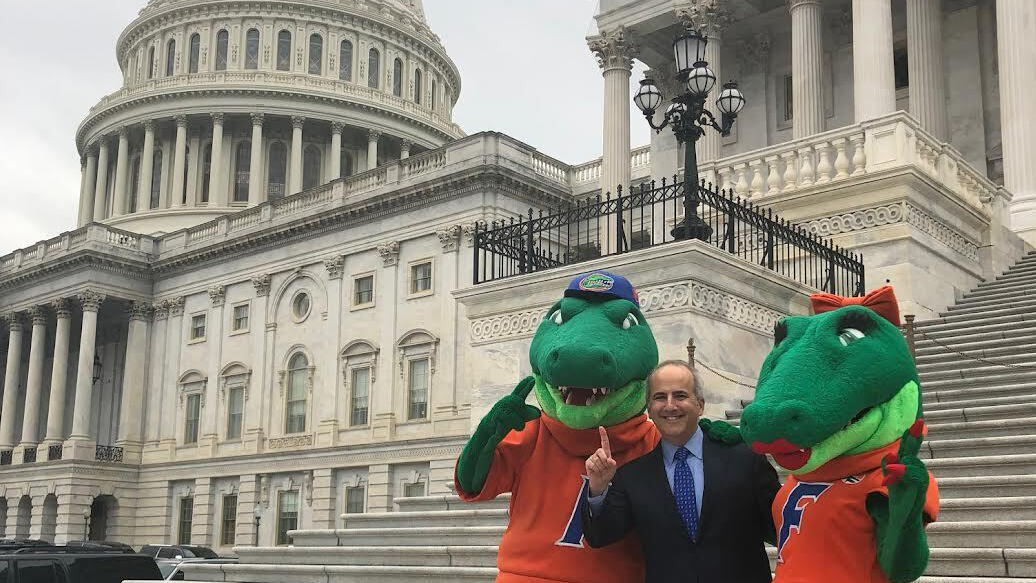On a stressful day in the office, Mark Kaplan went outside to get some fresh air in Gainesville.
He walked around the University of Florida campus on a quick break when he stopped and took in the scene — a student ukulele club playing. Kaplan couldn’t help but smile.
Kaplan has long felt the magic of working for UF as Vice President for Government and Community Relations. This has been a dream job for Kaplan, a lifelong Gator fan.
But at 57, Kaplan said he is stepping back from his role after dealing with health issues and going on medical leave this year. Kaplan said he is optimistic about his continued recovery but decided it is the right time to move on.
“I’ve only got one of me to take care of. This has been a good reminder of putting my attention on what’s most important,” Kaplan said.
Interim UF President Kent Fuchs praised Kaplan’s tenure in an email sent to his leadership team announcing his upcoming departure.
“The relationships Mark has built and the respect he has earned during his decades of leadership in Florida have served UF incredibly well,” Fuchs wrote. “The university community and I have benefited in countless ways from his wisdom, collaborative spirit, calm, steady approach to his work, and ability to get things done.”
Kaplan became the UF Vice President of Government and Community Relations in 2018 — 30 years after he earned his bachelor’s degree in political science at UF.
“In a lot of ways, this is a dream job to get to do this at your alma mater,” said Kaplan, who called working in higher education “intellectually stimulating.”
Kaplan said he got a front row seat as UF was on the cutting-edge of artificial intelligence and college athletes have been transformed by NIL payments in recent years.
Kaplan’s carefully planned day could get blown up at anytime; he never knew what he could get thrown into, he said. That made his work unpredictable and exciting.
“Just the vastness of UF creates a certain novelty every single day,” Kaplan said. “We talk about UF being among the most comprehensive universities in the country, with one of the few places in the country that has a vet school and a pharmacy school and a medical school and a law school. And one of the things that comes from all of that is it adds to the scope of things that you’re paying attention to and issues that you get to work on.”
The job could be grueling — Kaplan was on the road several months a year.
UF operates offices year-round in Tallahassee and Washington, D.C.
Kaplan’s traveled to Tallahassee during the Legislative Session and committee weeks to advocate for more investment in UF since tuition has remained relatively flat for the past decade, Kaplan said. In D.C., the office lobbied for more funding for the state and collaborated with other university associations and organizations to advance higher education.
“It would be impossible to overstate how much of a force for good Mark has been for our state, our university, and the scores of people he’s mentored along the way. Through example, he has taught a generation of Florida leaders how to approach problems with humility, alacrity, patience, and perspective,” said Chris Emmanuel, UF’s Director of Government Relations.
Before UF, Kaplan’s career included high-profile roles in all three branches of government.
Kaplan worked as Gov. Jeb Bush’s Chief of Staff, special counsel for the Speaker of Florida’s House of Representatives and a judicial clerk to a member of the U.S. Court of Appeals for the 11th Circuit.
Other stops included working as the executive director for the Florida Housing Finance Corp., the state’s affordable housing agency, and as global head of public affairs at the Mosaic Company.
But returning to Gainesville was special for Kaplan. It’s where he once played tuba in the marching band and piccolo during basketball games as a UF undergraduate.
Kaplan still returns with his tuba to play with alumni and the college band for the Homecoming game’s halftime show.
“My back was stronger when I was 18 years old than it is today,” Kaplan said. “It’s gotten harder, but I can still do it. It’s still a lot of fun, something I look forward to.”
In an interview this week with Florida Politics, Kaplan acknowledged the bittersweet feelings of leaving a job he values while also looking forward to the next chapter of his life.
He jokes he can finally find time for a hobby.
Kaplan and his wife, Sherry, will travel and spend more time with their family, which includes four adult children, he said.
“I have no idea what the next couple of decades are going to hold, but I’m excited about being able to take a little bit of time for myself and for my family and just sort of be open to the universe,” Kaplan said.
Post Views: 0

 Entertainment8 years ago
Entertainment8 years ago
 Entertainment8 years ago
Entertainment8 years ago
 Politics8 years ago
Politics8 years ago
 Tech8 years ago
Tech8 years ago
 Tech8 years ago
Tech8 years ago
 Tech8 years ago
Tech8 years ago
 Entertainment8 years ago
Entertainment8 years ago
 Politics8 years ago
Politics8 years ago










